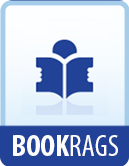Douglass lived in the family of Hugh Auld at Baltimore for seven years. During this time the achievement that had the greatest influence upon his future was his learning to read and write. His mistress had given him a start. His own efforts gained the rest. He carried in his pocket a blue-backed Webster’s Spelling Book, and, as occasion offered, induced his young white playmates, by the bribes of childhood, to give him lessons in spelling. When he was about thirteen, he began to feel deeply the moral yoke of slavery and to seek for knowledge of the means to escape it. One book seems to have had a marked influence upon his life at this epoch. He obtained, somehow, a copy of The Columbian Orator, containing some of the choicest masterpieces of English oratory, in which he saw liberty praised and oppression condemned; and the glowing periods of Pitt and Fox and Sheridan and our own Patrick Henry stirred to life in the heart of this slave boy the genius for oratory which did not burst forth until years afterward. The worldly wisdom of denying to slaves the key to knowledge is apparent when it is said that Douglass first learned from a newspaper that there were such people as abolitionists, who were opposed to human bondage and sought to make all men free. At about this same period Douglass’s mind fell under religious influences. He was converted, professed faith in Jesus Christ, and began to read the Bible. He had dreamed of liberty before; he now prayed for it, and trusted in God. But, with the shrewd common sense which marked his whole life and saved it from shipwreck in more than one instance, he never forgot that God helps them that help themselves, and so never missed an opportunity to acquire the knowledge that would prepare him for freedom and give him the means of escape from slavery.
Douglass had learned to read, partly from childish curiosity and the desire to be able to do what others around him did; but it was with a definite end in view that he learned to write. By the slave code it was unlawful for a slave to go beyond the limits of his own neighborhood without the written permission of his master. Douglass’s desire to write grew mainly out of the fact that in order to escape from bondage, which he had early determined to do, he would probably need such a “pass,” as this written permission was termed, and could write it himself if he but knew how. His master for the time being kept a ship-yard, and in this and neighboring establishments of the same kind the boy spent much of his time. He noticed that the carpenters, after dressing pieces of timber, marked them with certain letters to indicate their positions in the vessel. By asking questions of the workmen he learned the names of these letters and their significance. He got up writing matches with sticks upon the ground with the little white boys, copied the italics in his spelling-book, and in the secrecy of the attic filled up all the blank spaces of his young master’s old copy-books. In time he learned to write, and thus again demonstrated the power of the mind to overleap the bounds that men set for it and work out the destiny to which God designs it.




